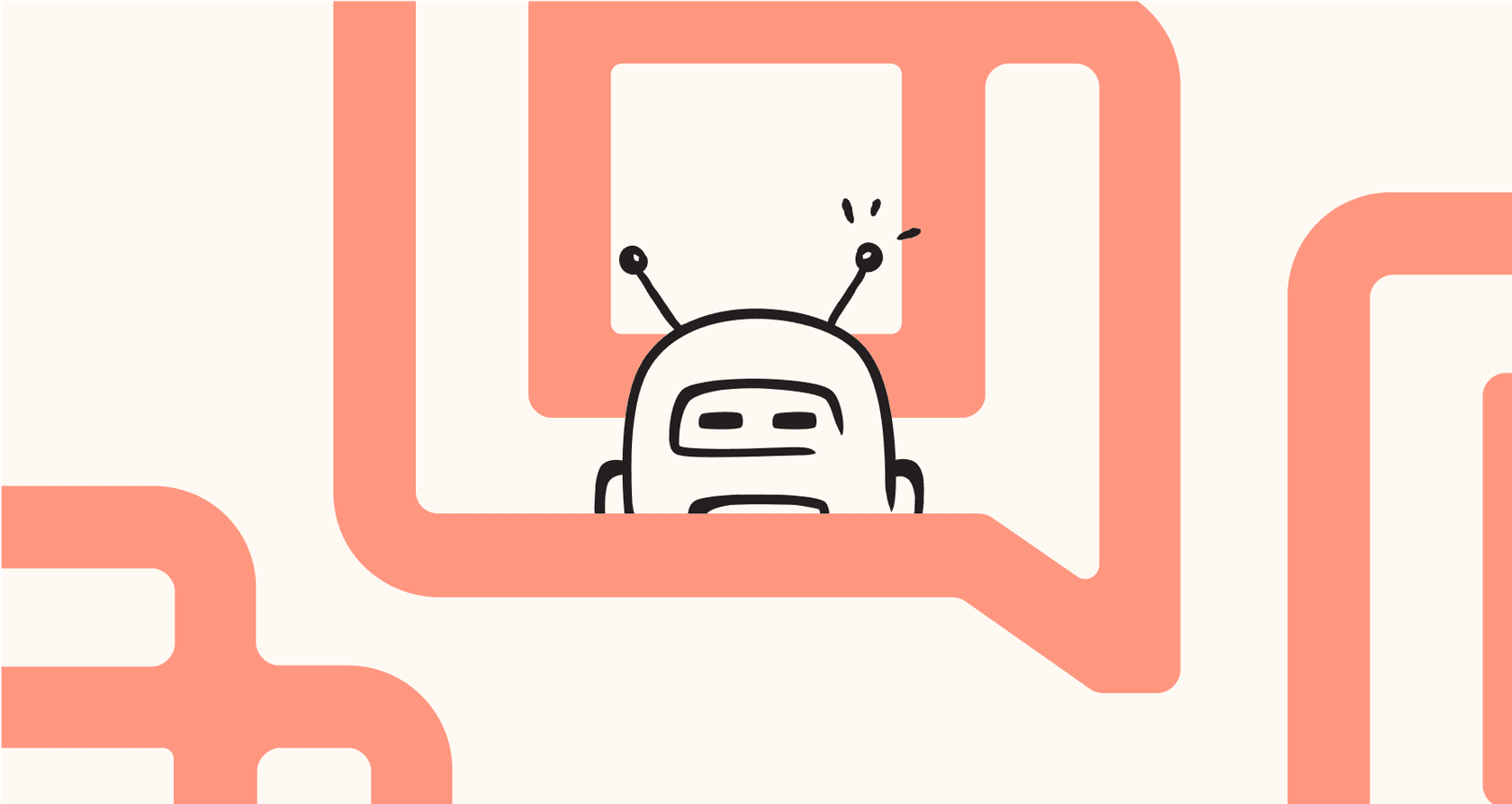A deep dive into the Gorgias AI trigger on search feature

Stevia Putri

Stanley Nicholas
Last edited January 16, 2026
Expert Verified

Let's be honest, when a potential customer uses the search bar on your e-commerce site, it's a huge buying signal. They’re not just window shopping: they have something specific in mind. Nudging them in the right direction at that exact moment can be the difference between a sale and a lost customer.
Plenty of tools are trying to crack this puzzle. Gorgias, a popular helpdesk for Shopify stores, has a feature called "trigger on search" that aims to start a chat with these high-intent shoppers automatically. It’s a powerful idea, and leveraging this built-in tool is a great way to scale your proactive support. To build an AI support strategy that truly excels in 2026, you need to know what these features do well and how to refine them for your specific brand needs.
What is Gorgias AI and the Gorgias AI trigger on search?
So, what is Gorgias AI? Think of it as a set of tools built to help e-commerce stores, especially those on Shopify, automate their customer support and drive additional sales. The star of the show is the AI Agent, which is designed to handle conversations before a purchase (like recommending products) and after (like tracking orders).
This AI Agent learns from your company’s knowledge, like your Help Center articles and website content, to answer customer questions. It’s meant to work across email and live chat, giving quick answers to the most common queries that flood your inbox.
The Gorgias AI trigger on search feature is part of its Shopping Assistant toolkit. The goal here is to switch the AI from just reacting to problems to proactively helping customers, stepping in before they even think to ask for help. It's all about making the shopping experience smoother and turning more browsers into buyers.

How the Gorgias AI trigger on search feature works
The Gorgias AI trigger on search feature is pretty straightforward. It’s an engagement tool that automatically pops open a chat window the second a visitor uses the search bar on your site. Instead of letting them dig through search results on their own, the AI Agent jumps in to offer a hand.
Here’s what that looks like from the customer’s side:
-
A shopper lands on your site and types something like, "Do you have vegan leather bags?" into the search bar.
-
As soon as they hit enter, the chat widget comes to life with a message from the AI Agent, saying something like, "Looking for vegan leather bags? I can help you find the perfect one."
-
From there, the AI tries to guide the conversation, answer follow-up questions, and point the shopper to the right product page.
The benefits are clear. You can catch shoppers with high purchase intent, make it easier for them to find what they're looking for, and close the sale efficiently. It’s all about providing that immediate assistance that keeps a shopper engaged.
Setting it up is a matter of flipping a few switches in your Gorgias settings. To get the best results, it's often helpful to look at how you can further personalize these interactions.
Considerations for the Gorgias AI trigger on search
While proactive AI is a game-changer, implementing it through a native helpdesk tool requires some thoughtful optimization. Here are a few things to keep in mind to ensure your 2026 AI strategy is as effective as possible.
Maintaining a unique brand voice
When using any AI, the goal is to ensure it sounds like an extension of your team. Gorgias provides a reliable, professional tone out of the box. To take it to the next level, some brands find success by refining their Help Center articles to guide the AI toward a more specific personality. This ensures that the helpfulness of the AI is matched by a tone that feels authentic to your unique brand identity.
Understanding the resolution-based pricing
The pricing model for Gorgias AI is designed around performance. Gorgias uses a per-resolution model, which means you pay between $0.90 and $1.00 for every single conversation the AI handles on its own. This is a great way to ensure you are only paying for successful outcomes. For stores with high volume, it’s simply a matter of budgeting for this success, as every resolution represents a saved agent minute and a potentially satisfied customer.
Enhancing control and integration
Native AI tools are built to work seamlessly within their own platforms. To get the most out of Gorgias AI, you'll want to ensure your Help Center is as comprehensive as possible. If you have data stored in external systems or want the AI to follow highly complex custom workflows, you might consider how a complementary AI layer can help bridge those gaps, ensuring your AI has all the context it needs to provide accurate answers every time.
So, what if you could enhance the already strong Gorgias AI experience with even more customization?
eesel AI: A complementary option for the Gorgias AI trigger on search
Instead of being a replacement, eesel AI is a smart AI layer that works alongside the helpdesk you already use, like Gorgias. It’s built to give you the brains of a powerful AI agent that integrates directly into your existing Gorgias workflow. Here’s how it complements the native features.
Total control over AI persona and workflow
Working with Gorgias, eesel AI gives you additional layers of control. It has an intuitive prompt editor where you can define the AI's exact tone, personality, and rules for when to hand off to a human. You can make it sound just like your best agent.

Even better, you can build custom actions. Need your AI to look up live order info from Shopify? With eesel AI, you can set up the AI to connect to various APIs, allowing it to handle complex, real-time jobs that enhance your overall Gorgias setup.
Unify all your knowledge, instantly
An AI is most effective when it has access to all your information. While Gorgias focuses on your Help Center, eesel AI can connect to over 100 sources. It can learn your brand voice by reading your past support tickets, pull details from internal guides in Confluence or Google Docs, and stay updated on your latest policies. This ensures that the answers provided within your Gorgias chat are as informed as possible.

Go live in 2026 with confident testing
Getting started with a complementary tool like eesel AI is refreshingly simple. You can sign up and get your first AI agent running in minutes, and it works right on top of your Gorgias widget.
The best part is that you can test your setup extensively. eesel AI has a simulation mode that lets you test your setup on thousands of your past tickets. You can see exactly how the AI would have replied, get solid predictions on your resolution rates, and tweak its behavior before it ever talks to a real customer. This takes the guesswork out of launching a new automation tool.

Gorgias AI trigger on search vs. eesel AI: A feature comparison
To lay it all out, here’s a quick comparison of how Gorgias's built-in AI performs alongside the added flexibility of eesel AI.
| Feature | Gorgias AI Agent | eesel AI (with Gorgias) |
|---|---|---|
| Customization | Streamlined options for tone of voice. | Full control via a prompt editor to define personality, tone, and specific instructions. |
| Knowledge Sources | Help Center, Shopify data, and website content. | 100+ integrations including past tickets, Confluence, Google Docs, Notion, etc. |
| Actions | Pre-set actions like returns and order edits. | Fully custom actions to call any internal or external API (e.g., check inventory, update CRM). |
| Testing | Live deployment and monitoring. | Powerful simulation on historical tickets to forecast automation rates before you launch. |
| Setup | Built-in and easy to activate. | Super self-serve: you can go live in minutes without a single sales call. |
| Pricing Model | Pay-per-resolution: pay for successful outcomes. | Predictable monthly fee based on interaction volume, with no per-resolution charges. |
Pricing: Gorgias AI trigger on search vs. eesel AI
Pricing is an important consideration when choosing how to power your AI initiatives.
Gorgias AI pricing
Gorgias’s pricing includes your monthly helpdesk plan plus a separate charge for every ticket the AI solves. This cost is usually between $0.90 to $1.00 for every single conversation the AI resolves. This ensures you are investing in actual results: the more tickets your AI deflects, the more time your human agents have for complex issues.
eesel AI pricing
eesel AI uses a clear, tiered model based on a certain number of "AI interactions" each month. For instance, the Team plan is $299/month for up to 1,000 interactions. An interaction is an AI reply or action, and there are no per-resolution fees. This provides a predictable monthly cost that scales with your volume, making it a great complementary option for teams using Gorgias who want to manage their budget with a flat fee.

Move beyond the Gorgias AI trigger on search with a truly intelligent AI agent
Features like the Gorgias AI trigger on search prove that proactive support is a fantastic sales tool. Using this built-in capability is a smart first step for any Shopify brand looking to improve engagement.
For e-commerce brands that are serious about turning customer support into a revenue machine in 2026, adding a flexible AI layer can provide even more control and intelligence. By combining Gorgias's robust infrastructure with a system you can truly customize and test, you can build a truly intelligent AI agent that perfectly represents your brand.
Ready to take control of your customer support automation? Try eesel AI for free and see how it can enhance your Gorgias experience today.
Frequently asked questions
The Gorgias AI trigger on search is an engagement tool that automatically pops open a chat window when a visitor uses your site's search bar. Its main goal is to proactively assist high-intent shoppers, guiding them to products and answers they need to streamline their journey and drive sales.
As soon as a shopper uses the search bar and hits enter, the AI Agent activates the chat widget with a message relevant to their query. From there, the AI guides the conversation, answers follow-up questions, and directs the shopper to the appropriate product page or information efficiently.
While Gorgias offers a robust foundation, users often look to optimize the AI's persona to ensure it feels perfectly aligned with their brand. Additionally, understanding the resolution-based pricing model helps in effectively budgeting for your automation success.
Gorgias provides standard options for the AI's tone of voice to ensure a professional and helpful experience. For brands requiring highly specialized or unique personalities, using a complementary AI layer can provide that extra level of granular control.
Gorgias uses a per-resolution pricing model, charging between $0.90 and $1.00 for every conversation the AI fully resolves. This model ensures you are paying for actual results and successful ticket deflections, making it a performance-based investment for your support team.
The Gorgias AI trigger on search is designed for quick deployment. To see how it interacts with your specific customer base, you can activate it and monitor the real-time interactions through the Gorgias dashboard, allowing you to refine your knowledge base for even better outcomes.
Share this post

Article by
Stevia Putri
Stevia Putri is a marketing generalist at eesel AI, where she helps turn powerful AI tools into stories that resonate. She’s driven by curiosity, clarity, and the human side of technology.






